The Seven Deadly Skills of a Great Copywriter
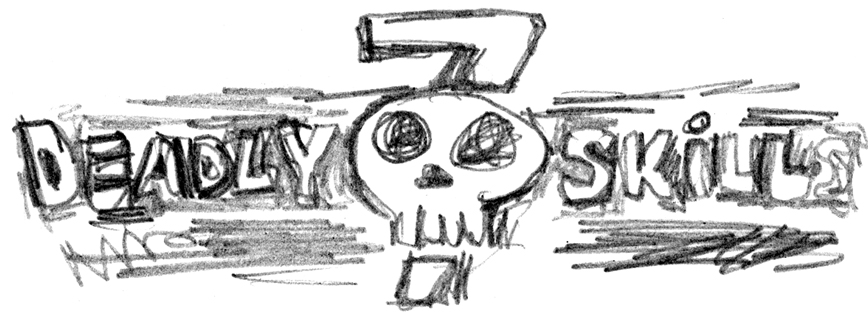
Anybody can be a writer of sorts, but what does it take for an ‘anybody’ to become a proper, worth-every-penny, great copywriter?
For dramatic effect, I’ve boiled it down to what we’ll call:
THE SEVEN DEADLY SKILLS OF COPYWRITING
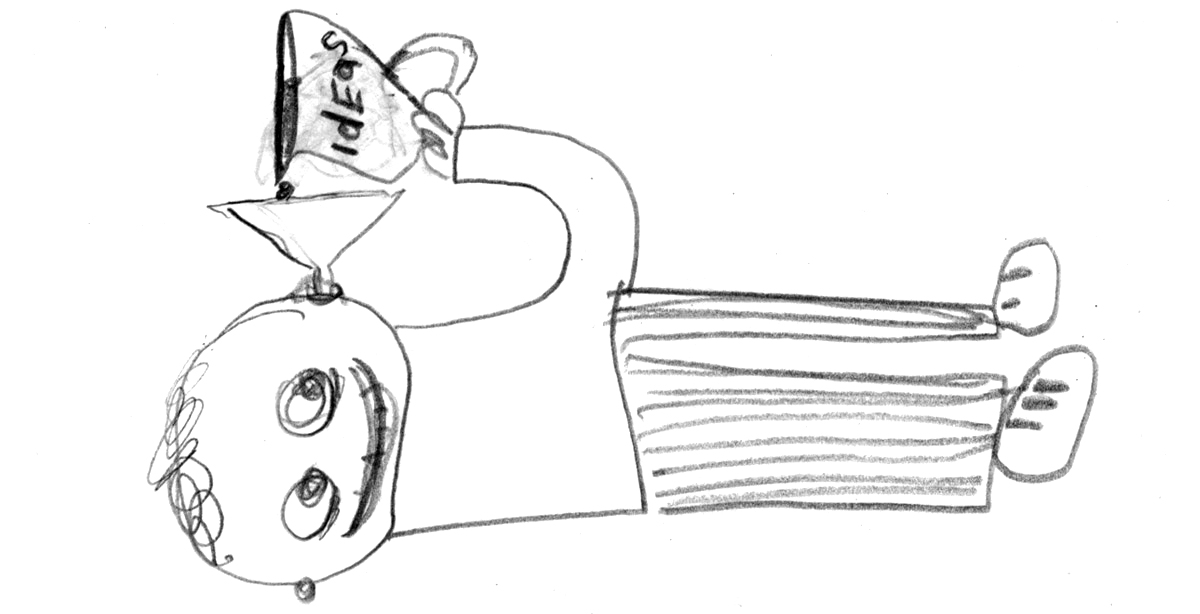
1) A mind stuffed with ideas
Spelling and stringing sentences together are the bricks and mortar, but ideas are the foundations. A great copywriter isn’t just great with words; they’re also a great ideas person.
There’s an overload of marketing messaging out there, so copywriters use smart creative thinking to give their clients an edge. A great copywriter isn’t afraid to try something different to get noticed.
Copywriting rule number one says, ‘headlines should be short and snappy’. Great copywriter says, ‘Lipsmackin’ thirstquenchin’ acetastin’ motivatin’ goodbuzzin’ cooltalkin’ highwalkin’ fastlivin’ evergivin’ coolfizzin’ Pepsi’.
Perfect spelling and grammar don’t make copy stand out, ideas do.
A great copywriter also knows the difference between ideas for ideas sake and ideas that are centred in the product or its character, values or attributes.
Bill Bernbach:
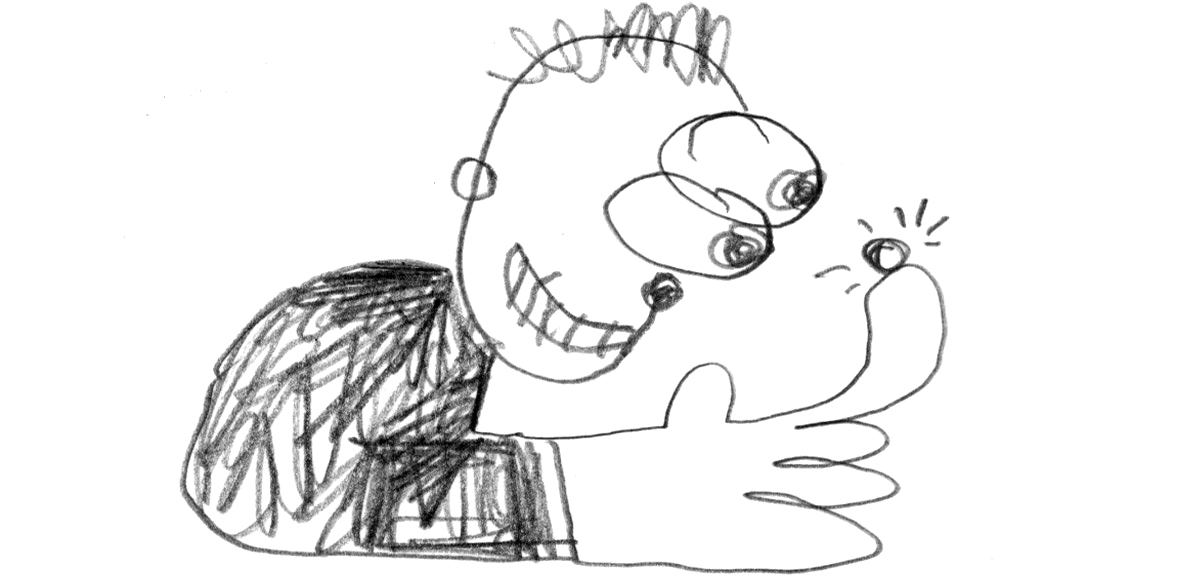
2) A love of the details
Idea first; telling the story second; then editing, editing editing. One word too many is one word too many. One typo stands out like a dog’s wotsits. A slip in tone of voice grates on the reader.
Details are important to a great copywriter.
At the same time, deadlines are deadlines and we have to cut-off at some point. Balancing the pursuit of perfection with the constraints of economic pressures is a constant reality for any copywriter. A great copywriter gets that balance just right.
Robert Fleege: An ad is finished only when you no longer can find a single element to remove.

3) Up-to-speed-ability
Some people are born with it, but most require practice. The ability to write to order is gold dust.
I wake up one morning with a dull headache. The client’s changed their mind about a chunk of copy for the fifth time. I’m not in the mood. I’m no longer excited by the brief, the product or, with this throbbing bonce, not even the paycheque at the end. Now what?
Great copywriters can turn ‘it’ on when they have to. They cut through the problems to find new solutions even when there seem to be more problems than an over-order at the problem factory.
They’re not phased by compromise or the idea of ripping it up and starting again. A great copywriter is a great copywriter any day of the week*.
*A great copywriter will also know how long it takes to decipher, research, understand, write and re-write. Just because they’re great doesn’t mean it’s instant.
Dave Trott: “
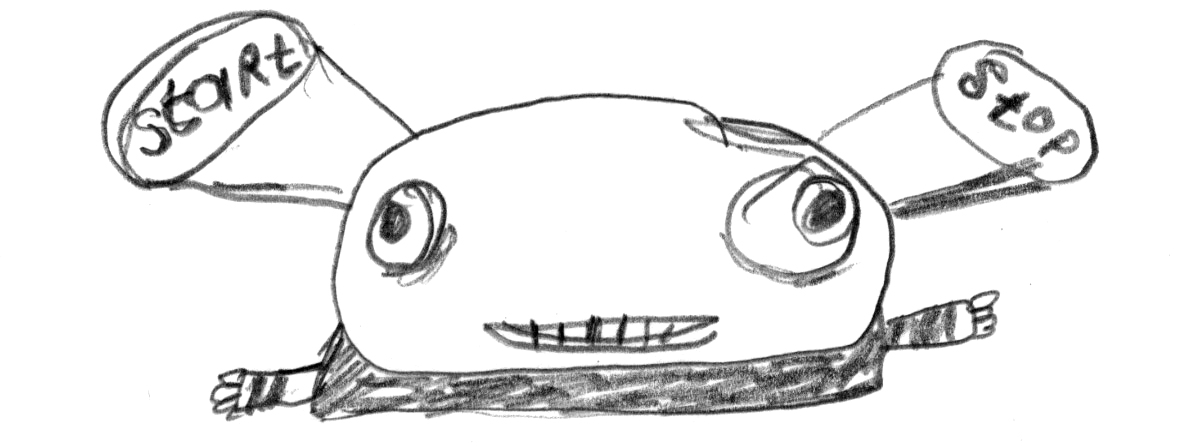
4) Working start and stop buttons
Great copywriting always starts with a great brief, but just as important are research and asking the right questions.
It can be tempting to write a few thousand words based on a slither of information or a germ of an idea (and in the right hands, that can sometimes be enough), but a great copywriter is also a detective/forager/investigator.
Whether given a verbal, 2-minute briefing in a Soho coffee bar or a 20-page brief document in a 3-hour strategy meeting; a great copywriter will sift and sort, quiz and question until he or she has the right information at their fingertips.
Just as much as knowing where to start, copywriters know when to stop.
Clients sometimes mistakenly think that writing hundreds of words takes much longer than writing a few.
Getting to the point, persuasively, entertainingly and convincingly can take 10 times longer than writing paragraphs of meandering waffle.
A great copywriter knows when enough is enough. They know that their audience is busy and imapatient. They know all the tricks to get them to take in the juiciest bits of information and keep them reading.
The world is complicated and confusing. Our job as copywriters is, as much as anything else, to simplify. There is so much stuff to think about, so many decisions to make. After we’ve grabbed their attention, we need to make things as easy as possible.
Do I like the look of this? Does it speak my language? Do I know what to do next?
Great copywriters are happy to hack away, even at the bits they love, to leave just the bits that work.
Great copywriters Keep It Simple.
Leo Burnett: Make it simple. Make it memorable. Make it inviting to look at. Make it fun to read.
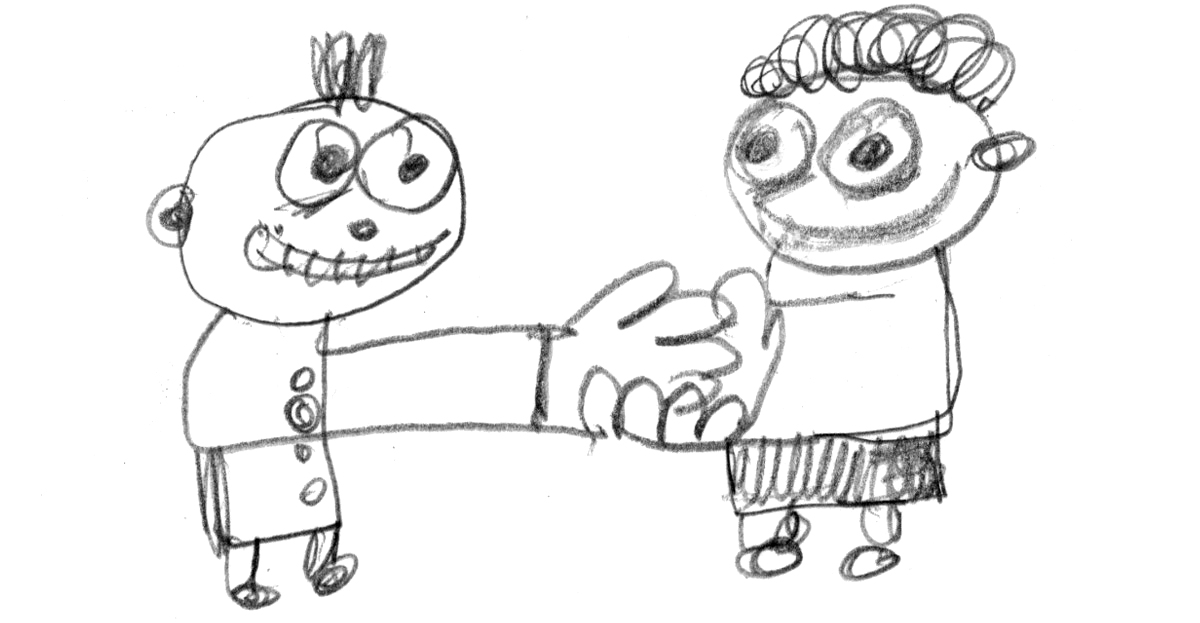
5) A (nice) way with people
A great copywriter is on your side. They fight for you and whatever you are selling. They gain your trust and become a part of your team. They do this because it makes all round good business sense.
When a client is onboard, when they like and trust you, they will listen to your opinion and allow you to do the best possible job.
A great copywriter will tell you if you are asking them to polish a turd. If you want them to tell the world that your terrible product is the best ever, then they have the guts to explain why that won’t work.
They may be the experts, but they know that everyone involved has a part to play.
They listen as well as challenge. They fight their corner as well as empathise with the client’s position.
They are confident, but know when to back down.
The best copywriters are usually nice people to work with.
David Ogilvy: “We exist to build the business of our clients. The recommendations we make to them should be the recommendations we would make if we owned their companies, without regard to our own short-term interest. This earns their respect, which is the greatest asset we can have.”
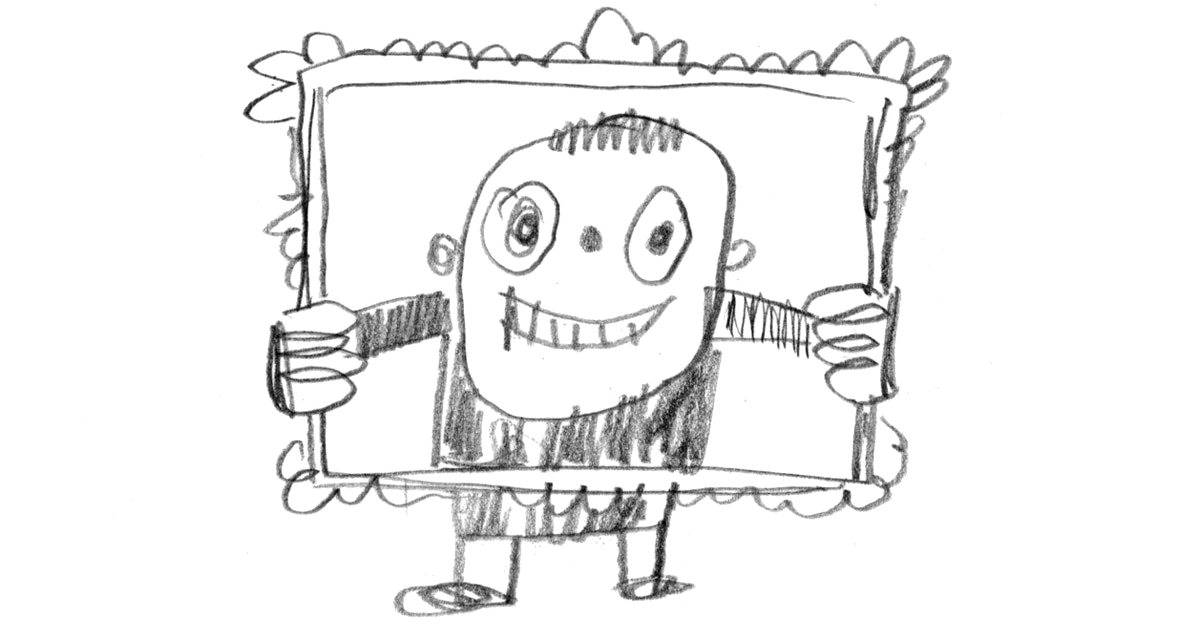
6) An eye for pictures
Words are powerful. Pictures grab the attention. When the two work together in harmony, then that’s often where the magic happens. Copywriters need to spend time with Art Directors and Designers. They need to pore over the pages of D&AD annuals, visit art galleries and fall in love with images as much as they have with words.
Copywriting is about communication, not just writing. An intimate knowledge of how words and pictures can work together to communicate is a huge advantage to any copywriter who aspires to greatness.
David Abbott: Think visually. Ask someone to describe a spiral staircase and they’ll use their hands as well as words. Sometimes the best copy is no copy.
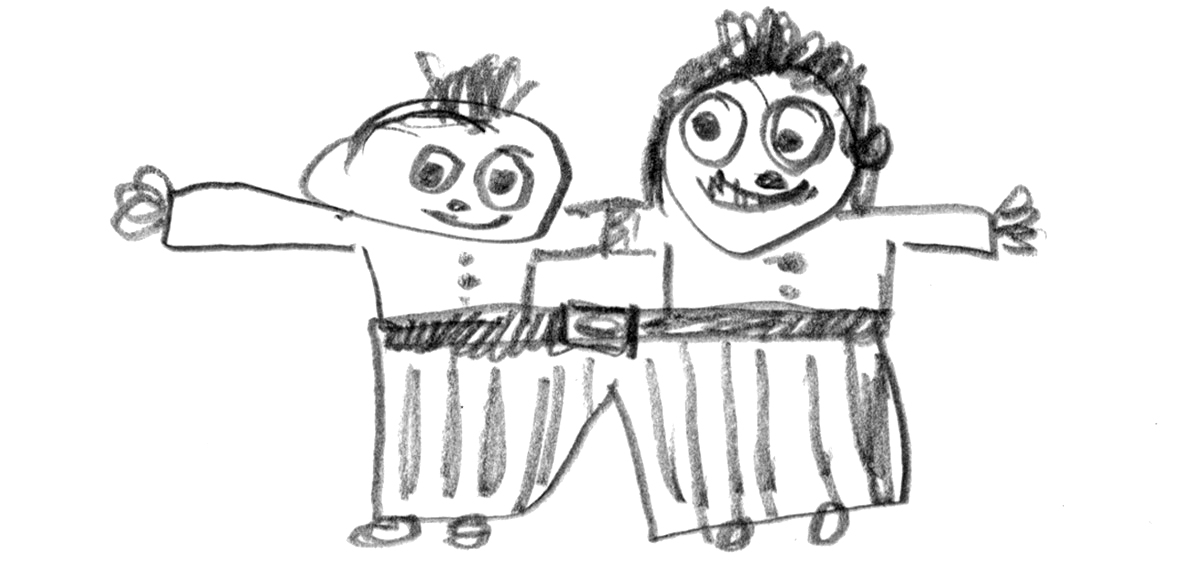
7) A connection with the audience
‘Clever’ writers fill their prose with ‘clever’ words to show off just how ‘clever’ they are. A great copywriter uses the language that their audiences respond to.
Unlike literary writers, copywriters can’t afford to use their own style of writing over and over. Every job is different.
Last week I was working on scripts for a software provider. The week before it was web copy for an overseas development charity. A one-size-fits-all approach won’t cut it.
A great copywriter wears a hundred different hats: comedian, best friend, business adviser… Copywriters need to be actors, getting into the role and speaking in the appropriate voice.
Tony Brignull: “Great lines don’t have to be clever, they just have to speak to people.”
For me, these are the most important skills that any copywriter needs. Add to this a massive shovel full of patience, confidence and a sense of humour, and you’re going to be at least halfway to greatness.
– – – – – – –
While writing this post, imposter syndrome raised its ugly head and whispered in my ear, “So, are you a GREAT copywriter Mr Wilcock?”
I’m sure even David Abbott would have felt uncomfortable wearing that badge, but I’m practicing all of the above, at least most of the time. I reckon I’m better this year than I was the year before, so let’s just say I’m heading in roughly the right direction.
But here’s an idea; give me a brief and put me to the test, then you be the judge.
More on copywriting and creativity:
Why you don’t need a specialist freelance copywriter
Where do creative ideas come from?
How freelance copywriters conquer writer’s block
Jonathan Wilcock (that’s me) is a Senior Freelance Copywriter.
You can drop me a line here, or email jonathan@sowhatif.co.uk